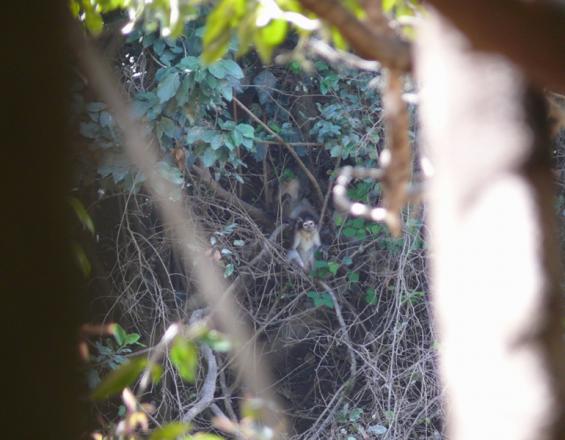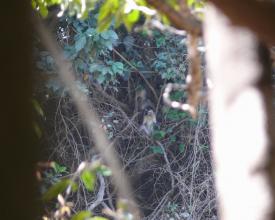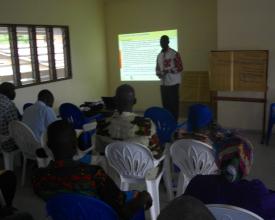
Community empowerment for the conservation of Critically Endangered primates and their habitat

The Tanoé Forest in Ivory Coast harbors an exceptional wealth of biodiversity. It also is the only place where 4 of the rarest West African primate species are thought to still co-exist. Recently, the forest has been threatened by conversion into an oil palm plantation. Inza Koné started a campaign to save the forest, ranging from engagement with the local community to political campaigning, resulting in the development of a community-based conservation program.
Context
Challenges addressed
Environmental challenges
- Poaching / habitat destruction / Water pollution / Overharvesting of biological resources / Ecological isolation
Economic challenges
- Poverty / Food insecurity / Lack of alternative livelihoods
Social challenges
- Lack of capacity / Conflicting interests
Location
Process
Summary of the process
Community empowerment consists in enabling more people to play an active role in the decisions that affect their communities. An empowered community is one which is: (i) confident, (ii) inclusive, (iii) organized, (iv) co-operative, and (v) influential. The five blocks of the above described solution aim at stimulating long-term social engagement of informed and skilled local communities. Indeed, authentic community engagement happens when people in communities create structures and processes that are empowering for themselves and others around a shared vision and in compliance with national legislations and procedures. In the above-described case, the shared vision is the long-term conservation of the Tanoé forest and its wild inhabitants combined with the well-being of local communities.
Building Blocks
Establishment of national committee
Enabling factors
Lesson learned
Community-led reserve designation
Enabling factors
Lesson learned
Pyramid structure of management institutions
Enabling factors
Lesson learned
Resources
Improved access to basic human needs
Enabling factors
Lesson learned
Devolving Responsibility And Rights Back To The Land Owners
Enabling factors
Lesson learned
Impacts
Decline of proposals to drain and convert 8,000 hectares of the Tanoé Forest into an oil palm plantation - Development of a community-based system for Tanoé Forest’s conservation and management, resulting in empowerment of local communities, protection of ancestral heritage and biodiversity - Outstanding achievements have resulted in a growing acknowledgement of the process as a promising model for wildlife conservation in West Africa, e.g. granting of 2009 Future for Nature Award and 2012 Whitley Award to Inza Koné for his work for Tanoé Forest.
Beneficiaries
Local communities / Wildlife authorities / Conservationnists
Sustainable Development Goals
Story

The Tanoé-Ehy community-based conservation project is considered an inspiring example of community empowerment for conservation. Indeed, as the project leader, I received several national and international awards and I am regularly invited to share my experience with other project leaders in Africa. Of note is that I was invited to give several talk at the 2014 World Parks Congress in Sydney despite the fact that the Tanoé-Ehy forest has not yet been officially designated as a protected area. The success of the project lies in continuous iterations in which research feeds actions and vice-versa.




